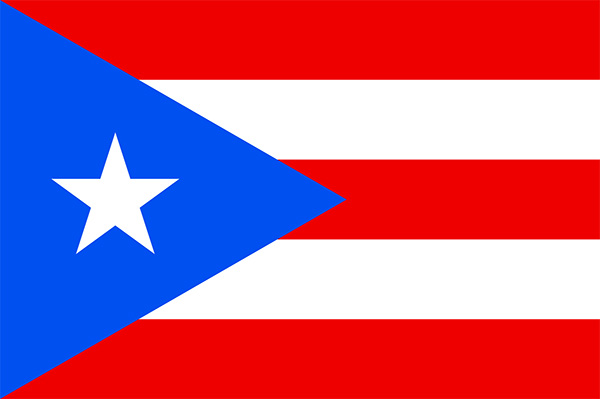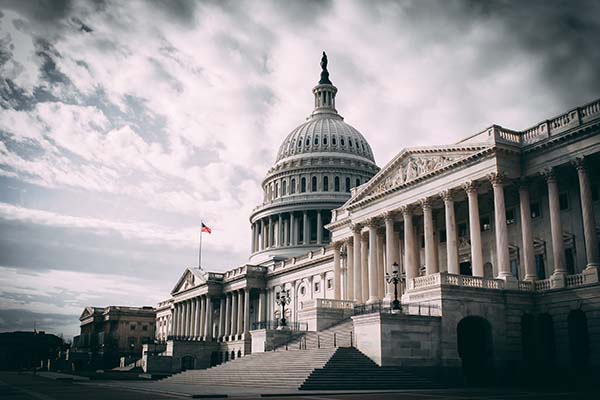Puerto Rico State Agencies
This website is providing a complete Puerto Rico state agencies directory, including locations, phone numbers, fax numbers, addresses, lookup, search & verification and more.
About Puerto Rico State
Puerto Rico is a Caribbean Island and unincorporated U.S. territory with a landscape of mountains, waterfalls and the El Yunque tropical rainforest. In San Juan, the capital and largest city, the Isla Verde area is known for its hotel strip, beach bars and casinos. Its Old San Juan neighbourhood features colorful Spanish colonial buildings and El Morro and La Fortaleza, massive, centuries-old fortresses.
The government of Puerto Rico is a republican form of government with separation of powers, subject to the jurisdiction and sovereignty of the United States.
Puerto Rico is located in the northeast Caribbean Sea, approximately 1,000 miles (1,600 km) southeast of Miami, Florida.
The Commonwealth is an archipelago among the Greater Antilles located between the Dominican Republic and the U.S. Virgin Islands, it includes the eponymous main island and several smaller islands, such as Mona, Culebra, and Vieques. It has roughly 3.2 million residents, and its capital and most populous city is San Juan.
Spanish and English are the official languages of the executive branch of government, though Spanish predominates.
Each of the 78 municipalities of Puerto Rico has adopted flags which represent the municipality and its people, employing designs that oftentimes derive their symbolism from the municipality’s coat of arms. Most of the political parties in Puerto Rico also have their own flags, which represent and symbolize the political ideals of its members. These political party flags are usually displayed in public during political rallies, meetings, or parades in a show of political strength and unity. Various sports associations in Puerto Rico have adopted flags which represent them, and which are used during competitions and other sport events.
Puerto Rico Official Government Website
Puerto Rico Governor
Puerto Rico COVID-19 Updates
Puerto Rico COVID-19 Vaccine
Puerto Rico History
Puerto Rico State Archives
Puerto Rico Tourism
Puerto Rico Facebook
Puerto Rico Flag
The flag of Puerto Rico (Spanish: Bandera de Puerto Rico) represents and symbolizes Puerto Rico and its people.
The origins of the current flag of Puerto Rico, adopted by the commonwealth of Puerto Rico in 1952, can be traced to 1868, when the first Puerto Rican flag, “The Revolutionary Flag of Lares”, was conceived by Dr. Ramon Emeterio Betances and embroidered by Mariana “Brazos de Oro” Bracetti. This flag was used in the short-lived Puerto Rican revolt against Spanish rule in the island, known as “El Grito de Lares”, establishing for the first time a Puerto Rican national consciousness under colonial rule.
The flag of Puerto Rico has five equal horizontal bands of red (top and bottom) alternating with white; blue equilateral triangle based on the hoist side bears a large, white, five-pointed star in the center. (Official colors of the flag)

Puerto Rico State Facts
Watch this video to discover the most important facts about Puerto Rico state, the state in the southeastern region of the United States.
Puerto Rico Agencies
Puerto Rico Secretary of State
The Puerto Rico Secretary of State (PR SOS) is responsible for a wide range of duties, including business filings, corporations, trademarks, campaign finance reports and lobbyist registration. The Puerto Rico Business Corporation Registry Division is the chief elections officer of Puerto Rico, and is responsible for overseeing all federal, state, and local election activity in Puerto Rico.
Puerto Rico Department of Health
The Puerto Rico Department of Health (PR DOH) is a state government agency that promotes, protects and ensures the health and wellness of all the citizens in the state of Puerto Rico. The Puerto Rico State Department of Health’s mission is to advance the health and safety by providing programs and services that protect and improve the quality of life.
Puerto Rico Hacienda
The Puerto Rico Hacienda was created to provide a central agency to collect taxes, administer licensing, enforce tax collection laws and distributing all state taxes. The mission of the Puerto Rico Hacienda is to provide a fair and efficient tax system that enhances Puerto Rico’s economic growth.
Puerto Rico Corporation Search
A Puerto Rico Corporation Search allows you to view detailed information about a specific corporation, company, or business in the state of Puerto Rico including the names of directors, registered agent, registered office address, mailing address and the corporation’s purpose.
Puerto Rico Medicaid
Puerto Rico Medicaid is a Health Care Program for Puerto Rico residents who find themselves unable to afford or obtain health insurance. It offers a variety of health care services, such as: Vision Care, Dental Care, Hospital Care, Prescription Coverage and more.
Puerto Rico Board of Nursing
The Puerto Rico Board of Nursing (PR Salud) is the state agency responsible for protecting the public from unqualified and unsafe nursing care. PR Salud oversees the licensure, education and certification of nurses and nurse midwives, investigates complaints against nurses and midwives, and investigates and acts on allegations of impaired nurses and midwives.
Puerto Rico Vital Records
Puerto Rico Vital Records is the official repository of vital records in Puerto Rico. The Puerto Rico State Archives’ mission is to collect, preserve and make accessible this vital information for recording and preserving vital records like birth, death, marriage certificates, divorce decrees and health statistics.
Puerto Rico DMV
The Puerto Rico DMV (PR DMV) is the organization that handles transportation in the state of Puerto Rico. The organization is made up of a number of different offices spread throughout the state and is responsible for issuing licenses and documents to both drivers and motor vehicles as well as registering motor vehicles.
Puerto Rico Inmate Search
Puerto Rico Inmate Search (PR DOC) is the official Puerto Rico state centralized, Internet-based inmate locator service that provides authorized users with the ability to search for an inmate’s profile. Search Puerto Rico Inmate Records using Name, Date of Birth, or PR DOC Number (Inmate Name and Date of Birth are required for a search).
Puerto Rico Insurance Department
The Puerto Rico Insurance Department protects consumers by making sure insurers are financially strong and operate fairly, by enforcing Puerto Rico’s laws and regulations, and by educating consumers about insurance. OCS PR assist consumers in resolving complaints about insurance and to support the development of a sound and prosperous insurance industry in Puerto Rico.
Puerto Rico Department of Education
The Puerto Rico Department of Education works to improve public education for all students by providing leadership, guidance, and resources. PR DOE promote high academic achievement for every student through our standards-based education improvement efforts. Puerto Rico Department of Education is responsible for setting policy and supporting programs that provide students, educators and the citizens of Puerto Rico with the highest quality public education possible.
Puerto Rico Department of Labor
The Puerto Rico Department of Labor is the state agency responsible for administering laws and rules governing the employment relationship. The mission of the Puerto Rico Department of Labor is to serve, promote, and advocate for the economic development, job growth, and quality of life in the state of Puerto Rico.
Puerto Rico Department of Corrections
The Puerto Rico Department of Corrections (PR DOC) is responsible for ensuring public safety by supervising offenders in the community and in state prisons. PR DOC provides a variety of offender services to assist offenders in being productive citizens. Offender services include treatment programs, educational programs, mental health services, work programs, housing, and family services.
Puerto Rico Office of The Commissioner of Insurance
Puerto Rico Office of The Commissioner of Insurance enforces the laws related to insurance in Puerto Rico, regulates the insurance industry and investigates and resolves complaints from consumers and businesses regarding violations of the insurance laws.
Puerto Rico Unemployment Office
The Puerto Rico Unemployment Office is the state agency that is responsible for determining if you are eligible for Puerto Rico state unemployment benefits and provide workforce services for people who have lost their jobs. This agency is funded through a payroll tax that is paid by Puerto Rico’s employers.
Puerto Rico Board of Accountancy
The Puerto Rico Board of Accountancy is responsible for the licensure and regulation of certified public accountants (CPAs) and public accounting firms in the state of Puerto Rico.
Puerto Rico Board of Medical Licensure and Discipline
The Puerto Rico Board of Medical Licensure and Discipline is the state agency responsible for protecting the health, safety, and welfare of the public. The Board assures that only qualified persons are licensed to practice medicine in Puerto Rico, investigates citizen complaints against doctors, and ensures physicians are competent to practice medicine.
Puerto Rico Board of Pharmacy
The Puerto Rico Board of Pharmacy (PRBOP) protects the health and safety of citizens of the state of Puerto Rico by ensuring the safe and effective use of prescription drugs, surgical procedures, and medical devices. The PRBOP regulates the practice of pharmacy in Puerto Rico. This includes the licensing of all pharmacies within the state, whether retail or institutional.
Puerto Rico Department of Transportation and Public Works
The Puerto Rico Department of Transportation and Public Works (Puerto Rico DOT) is the agency responsible for the building and maintenance of the state’s transportation system and infrastructure. Puerto Rico DOT is committed to providing safe and reliable transportation services to the state.
Puerto Rico State Board of Cosmetology
The Puerto Rico State Board of Cosmetology regulates the practice of cosmetology and barbering in the state of Puerto Rico and provides information about licensing requirements. The Board provides consumer information about the requirements for certification in each of the specialty practice areas.

